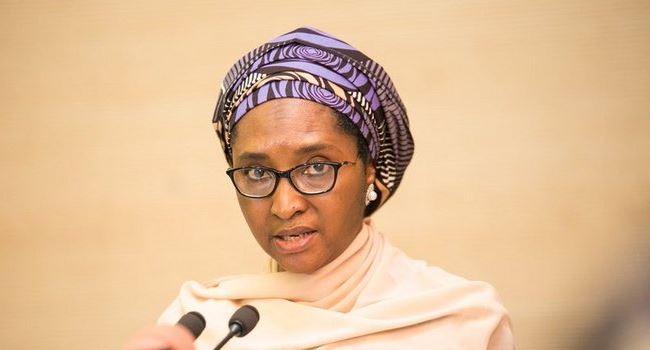Business
Salaries of Nigerian govt officials climbed from N1.5tn to N3.75tn within 5 years —Finance minister

Nigerian government’s wage bill climbed by 150 per cent in the five-year period between 2015 and 2020, Minister of Finance Zainab Ahmed said Tuesday at the public presentation of the 2021 budget.
Put differently, government officials’ wage bill, which was N1.5 trillion in 2015, ballooned to N3.75 trillion in 2020.
“You can see from the presentation that I made, in 2015 the wage bill of the government, the salaries of government officials stood at N1.5 trillion. That has gone up by 150 per cent in what we have in 2020.
“And the wage bill keeps growing on a daily basis. That is the biggest expenditure in our budget and we must pay special attention to it to be able to make sure that at least what we are paying is reasonable, true and fair,” Ms Ahmed said.
In the 2021 spending plan presented by President Muhammadu Buhari to the National Assembly last week, N3.76 trillion was proposed as personnel costs for next year, gulping about 29% of the total expenditure and almost drawing level with estimate for capital expenditure at N3.85 trillion.
The minister disclosed that government was not prepared to pay the salary of any Academic Staff Union of Universities (ASUU) member not registered on the Integrated Payroll and Personnel Information System (IPPIS).
Read also: Defiant Buhari insists only workers on IPPIS platform will receive salaries
She believed the protests of some oil workers who earlier resisted the adoption of the IPPIS were reasonable but felt ASUU should embrace the payroll system.
“If I may remind you, in October 2019 when the President presented the budget to the National Assembly, he said that by the end of October any staff who is not on IPPPIS should not be paid salary.
“So we waited October, January, February before we finally stopped giving excuses and actually stopped the salaries of those not on IPPIS. What is special about this (ASUU) people?
“If we can capture some tertiary institutions and hospitals who have some peculiarities, what is different about the university system that they cannot be captured?”
She insisted that a biometric capture was significant for anyone being paid from government funds.
Regarding universities laying claim to independence, Ahmed said “yes they are, in a manner of speaking. But the salaries are paid by government.
“You can only claim independence if you can generate your revenue and pay your salary.”
Join the conversation
Support Ripples Nigeria, hold up solutions journalism
Balanced, fearless journalism driven by data comes at huge financial costs.
As a media platform, we hold leadership accountable and will not trade the right to press freedom and free speech for a piece of cake.
If you like what we do, and are ready to uphold solutions journalism, kindly donate to the Ripples Nigeria cause.
Your support would help to ensure that citizens and institutions continue to have free access to credible and reliable information for societal development.
























